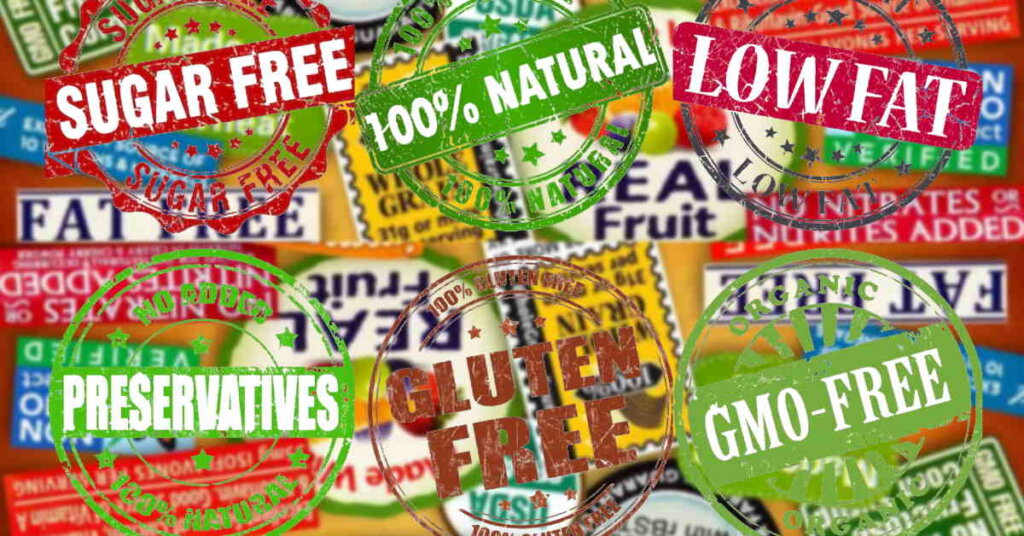Fat often gets a bad rap as being the end-all be-all culprit in the obesity epidemic and food marketing has certainly caught on to this “low-fat” diet trend. Food science is just beginning to debunk some old ways of thinking showing that our low-fat ideology may actually be hurting the cause more than helping. Check out this excerpt from Journal of the History of Medicine and Allied Sciences, Volume 63, Issue 2, April 2008, Pages 139–177, https://doi.org/10.1093/jhmas/jrn001
Scientific studies dating from the late 1940s showed a correlation between high-fat diets and high-cholesterol levels, suggesting that a low-fat diet might prevent heart disease in high-risk patients. By the 1960s, the low-fat diet began to be touted not just for high-risk heart patients, but as good for the whole nation. After 1980, the low-fat approach became an overarching ideology, promoted by physicians, the federal government, the food industry, and the popular health media. Many Americans subscribed to the ideology of low fat, even though there was no clear evidence that it prevented heart disease or promoted weight loss. Ironically, in the same decades that the low-fat approach assumed ideological status, Americans in the aggregate were getting fatter, leading to what many called an obesity epidemic. Nevertheless, the low-fat ideology had such a hold on Americans that skeptics were dismissed. Only recently has evidence of a paradigm shift begun to surface, first with the challenge of the low-carbohydrate diet and then, with a more moderate approach, reflecting recent scientific knowledge about fats.
Deceptive Food Marketing
All it takes is a trip to your local grocer to see evidence of deceptive marketing techniques. Food products will often be marketed as being healthy using labels such as “Whole-Grain”, “Nutri-Grain”, “Reduced Fat”, “Virtually Fat Free”, “No Added Sugar” and so on. If you are not in the habit of scrutinizing the nutrition labels of the food you buy, you have probably fallen victim to deceptive marketing techniques like these. Many times you’ll find that food labeled as “reduced-fat” or “whole-grain” is ultimately higher in sugar and the same calorie count as the so-called “regular” version of the same product. Food makers will add sugar to their products to make up for the loss in taste when reducing the fat content. Sugar may actually be a bigger culprit in weight gain, obesity, and heart disease than fat.
What's in a name?
Manufacturers do follow guidelines when using labels like fat-free and low-fat:
Fat-free means the product has less than .5 grams of fat per serving.
Low-fat indicates 3 grams or less of fat per serving.
Reduced-fat is a marketing term that signifies 25 percent less fat than the full-fat version of the food.
Light food needs to have one-third fewer or 50 percent less fat.
However, these terms don’t address the type of fat in the product.
Types of fat
Four different types of fat exist and they are not created equal in terms of your health. The four types have different chemical structures and physical properties. The “bad fats,” saturated and trans fats, tend to be more solid at room temperature (like butter). Monounsaturated and polyunsaturated fats tend to be more liquid (like canola oil).
There are nine calories in every gram of fat, regardless of what type of fat it is. Fats are more energy-dense than carbohydrates and proteins, which provide four calories per gram.
Consuming high levels of calories – regardless of the source – can lead to weight gain or being overweight. Consuming high levels of saturated or trans fats can also lead to heart disease and stroke. Health experts generally recommend replacing saturated fats and trans fats with monounsaturated fats and polyunsaturated fats – while still maintaining a nutritionally-adequate diet. (American Heart Association)
Thinking about "good" fat
Don’t be fooled into building a diet regimen based on marketing terms like “low-fat” because you don’t know what kind of fat you’re getting. Essential fats are critical for your overall health. They help maintain blood vessels, play a role in developing hormones, and are critical for nervous system functioning. Also, good fat is necessary for absorbing fat-soluble vitamins.
Eating whole foods is a great way to avoid the bad fats (saturated and trans fats). Great sources of monounsaturated and polyunsaturated fats include: olives, avocados, nuts, sunflower seeds, sesame seeds, pumpkin seeds, flaxseed, walnuts, fatty fish such as tuna or salmon, soybeans, and tofu. Foods to generally avoid include: commercial foods (like donuts, bagels, and muffins), packaged snacks (like microwave popcorn, crackers, and chips), stick margarine, shortening, fried foods, chicken skin, and ice cream.
Staying healthy
Now that we know the truth behind “low-fat” marketing we can make better decisions when cruising the grocery aisles. Remember to check your nutrition facts before giving in to a “low-fat” version of a product. If you are wanting to lose some weight in a healthy way under our guidance and care, check out our Natural Fit Weight Loss Program. In it, we give you everything you need to detoxify your body and form healthy eating habits.




